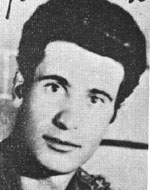Sayid, Hassan
Son of Amin and Halva. Was born in 1944. Born to a Druze family in Mount Druze – his family fought in the Druze revolt in 1925 against the French. When he was four, he immigrated to Israel with his family and settled in the Druze village of Rama. In the village, the Druze organized and operated as part of the Hagana in the war for the establishment of the state, and Hasan’s family members were among those who supported the Jews. In 1961 Hassan was drafted into the IDF, first in command posts, and after completing an officer-combat course, he became one of the pillars of the Druze unit, and in 1963 he moved with his family to the Druze village of Isfiya in Mount Carmel. And in the 1970s he went up to the north and commanded an elite unit that fought terrorism and placed it on the Lebanese border Hassan took part in security operations across the border in the war against the terrorists in Lebanon. As commander of the special unit on the Lebanese border, he built a professional unit that earned its reputation Hassan served on the Jordanian border in the Arava and went on to train in commanders’ training bases, prepare commanders for command and headquarters missions, and went on a military mission to Europe where he studied and worked in public relations, On behalf of the IDF, in the countries he visited. In January 1969, Hassan married Eliza and they had four children. Less than four months after his death, another son named Hassan was born. Hassan died in December 1978. He suffered a severe Lev attack and struggled with it, and when he was sure that he had recovered and went to a convalescent home, the attack struck him again, and this time they decided. In a letter of condolence to his family, Hassan said: “Hassan was one of those who did their work quietly and diligently, and he made every effort to carry out what was imposed on him.” Hassan loved the army, as well as his family. Hassan served in the army faithfully and with dedication and was proud of his right to serve in the IDF. “Hassan did indeed see his military service – in his conversations with his subordinates he used to talk about the right to serve in the IDF and not see the service Military duty only, because it is a duty that has a supreme civil right. After his death, a book called “An Absent Song” was published by the family, which is a collection of his poems.
